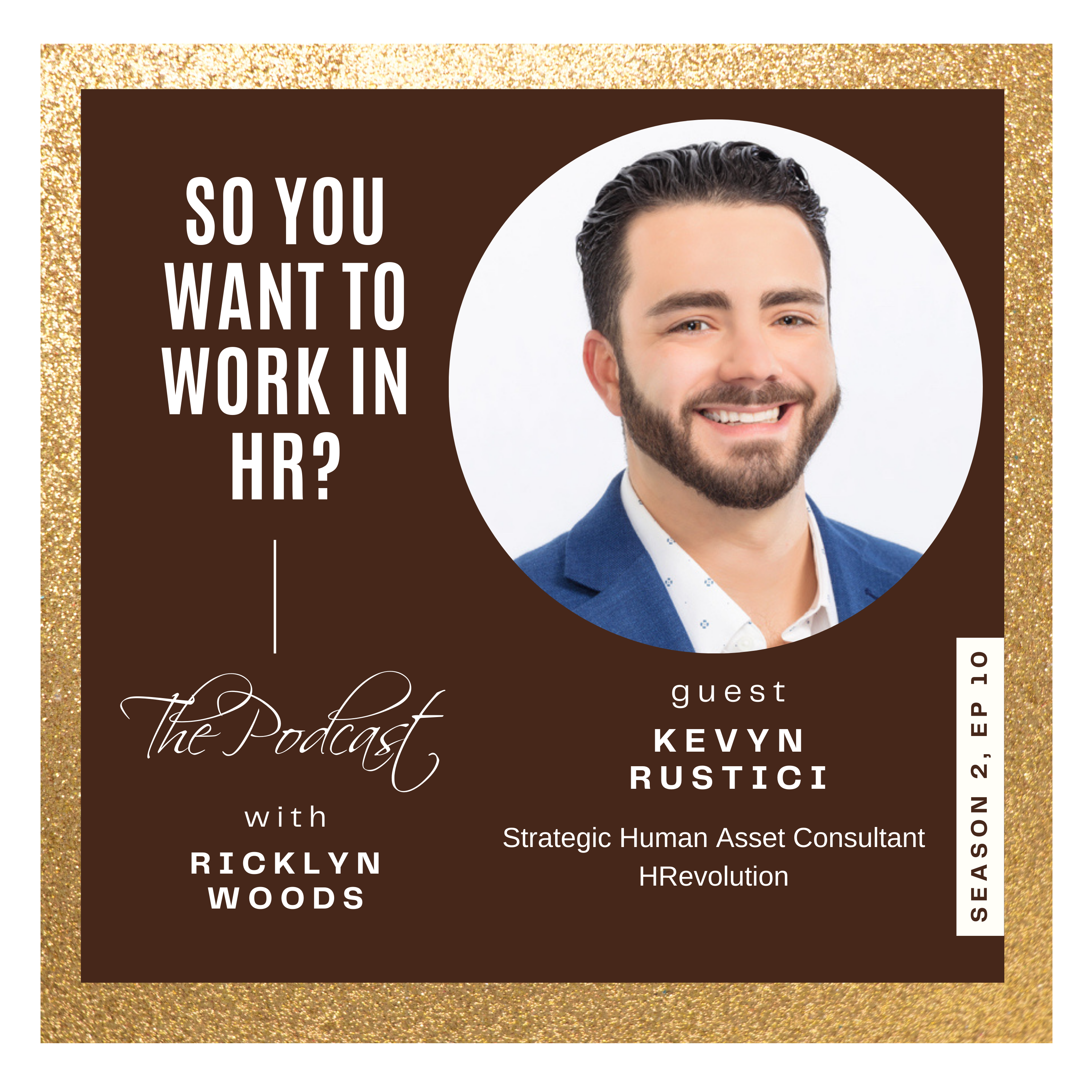Joining me today is Kevyn Rustici, HRevolution Strategic Human Asset Consultant. Kevyn believes data is the missing ingredient for most when making business decisions.
If you've been in HR for awhile, I'm sure you've heard the phrase, "HR is a cost center." This suggests we don't make the company money, which is why HR initiatives frequently get put on the back burner.
Oftentimes HR professionals struggle with communicating their return on investment for certain programs and initiatives. That's why I've been really excited about today's interview, because my guest is on a mission to revolutionize data and how we think about the impact & value of HR.
Rustici will give us insight into how data strategically flips HR from a cost center to a profit center.

Separating Data From Fiction
"Only 22% of people or businesses leverage data and science to make business decisions," declares Rustici. Most people make business decisions based on their emotions - depending on their gut instinct and intuition. For an example, a person naturally supports someone whose work won't challenge their own. If followed through on, this emotionally based decision could result unrealized achievements. "Data has a way to cut through emotions and through instinct and through all those other nonsense and really separate fact from fiction," reflects Rustici. In fact, data hooked Rustici into his vision of what HR can potentially do for an organization. He continued, "We just need to enable them to get there first. A lot of it has to do with the people of the process and the technology like you mentioned earlier."
Data: Not Just Numbers On A Page
Opportunities within IT seem to be endless and highly valued. "If you get comfortable with data there's always going to be a job for you," urges Rustici. "Data without insights is just numbers on a page. That's where creativity of HR and all that intellectual capital are reclaimed." By understanding the data points and how different sets relate to one another, data becomes insight. Insight builds knowledge, and knowledge produces wisdom. Equipped with deep understanding of our organizations, HR begins to see aspects of employees' careers that can make their lives better. Isn't this why most of us got into HR in the first place? Yes, the most common answer I hear for why people want to work in HR is to help people!
The Biggest Financial Impact
By focusing on the biggest financial impact, HR establishes relationships with management which is vital. From the C-Suite to the hiring manager, each person desires to make a financial impact - although in varying ways. To ensure HR becomes and remains business minded, Rustici always sticks to these three questions:
-
How do we make money as a business?
-
How do we lose money as a business?
-
Where do we spend money?
"People want different things. So we at HR we understand people better than anybody when we understand what motivates that particular individual. We then know what types of conversation and what types of information we need to be arming that person in order to enable their success as well. Just so we can obviously develop those mission critical relationships internally to work on these fund projects. Because then once we connect the business and they have an understanding of the financial impact to the human capital impact or HCROI.
Then they understand the importance of their people."
LISTEN TO THIS EPISODE NOW!
Listen & follow on your favorite platform: Apple Podcasts | Spotify | Google Podcasts | Audible